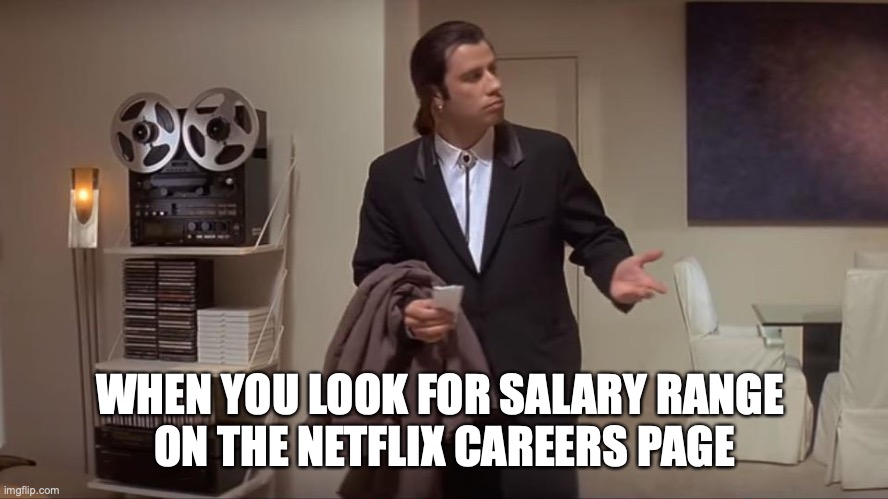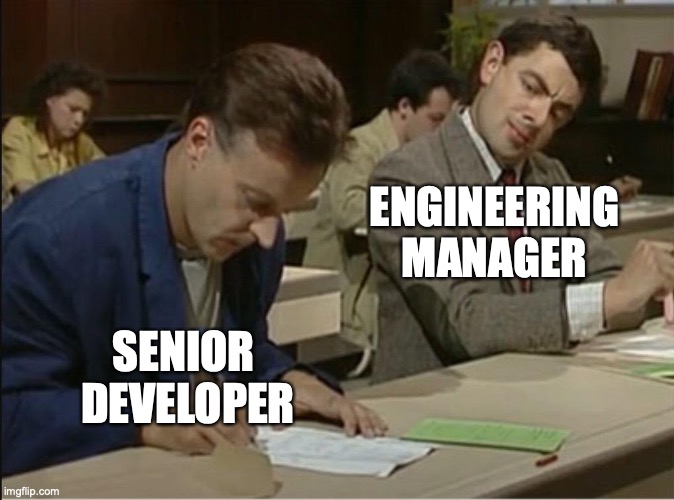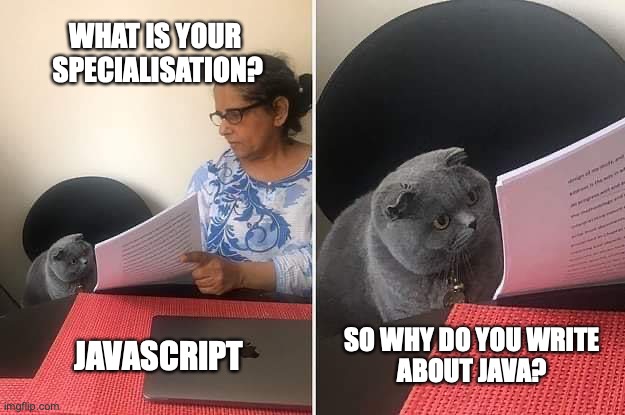Finally, I have some good news for you. Today we’re going to improve our mood with big investments, new responsibilities for our leaders, and opportunities in technical writing.
1. Cash is flowing to Central and Eastern Europe
To begin with, news that has warmed the keyboards of software engineers in Poland and gives a very positive boost to investors. Netflix has announced that it is opening its engineering centre in Warsaw. The announcement was published at a symbolic moment – it is January that marks the sixth anniversary of the platform’s debut in Poland. During this time, more than 30 Netflix productions have been made in Poland, and management has seen that (and here I quote the official announcement):
Poland has amazing engineering talent given its excellent universities and strong developer community.
The search for the best candidates has already begun and the ‘Netflix Jobs’ tab is slowly filling up with offers… okay, I exaggerated a bit. So far you can see four offers in there – one for Product Manager, one for Marketing Production Manager, and two more for pure engineering positions, which are undoubtedly Director and Software Engineer in Content Engineering. My guess is that these individuals will be responsible for expanding the team. In total, several dozen people are expected to work in the engineering centre. There’s also a pinch of bitterness – OFFERS HAVE NO SALARY RANGES. Netflix, seriously! Fill them in before I have a heart attack.

I wrote a bit about Warsaw, now about Kiev. From there, a ray of optimism is also reaching us in the form of €50 million for the development of Ukrainian startups. The Ukraine Phoenix Fund has been created through the cooperation of the French government and the association of technology companies – La French Tech Kyiv, headed by Dominique Piotet.
The French-American expert has been involved in digital transformation and strategy building for Fortune 500 companies for more than 20 years, and in 2019 he decided to settle in Kiev to support the development of local technologies.
According to Piotet:
The Ukrainian tech ecosystem is hyper-resilient, and it operates at more than 90% of its pre-war capacities. Also, for this sector, it is not a question of talking about reconstruction but rather about accelerating construction. And that’s good news. Tech already represents more than 5% of the Ukrainian GDP and will reach 15% in the next 4 years.
The fund is about to make around 150 investments, mainly in early-stage startups. A round of applause for France, but above all for our fellow programmers from Ukraine. We admire you!
Sources:
- https://about.netflix.com/en/news/netflix-to-open-new-engineering-hub-in-poland
- https://tech.eu/2023/01/11/marrying-the-best-of-french-and-ukrainian-innovation-kyivs-la-french-raises-eur50-million-for-ukrainian-vc-push/
- https://ain.capital/2023/01/13/ukrainian-phoenix-fund/

2. Boss, show us how it’s done!
Gergely Orosz is one of my favourite technology market analysts, who often shares very pertinent insights into current events. This time is no different. The thread started by Orosz on Twitter is dedicated to the rarely mentioned consequences of belt-tightening around IT.
According to him, Engineering Managers and Directors of Engineering should prepare for increased expectations of their teams and of themselves. There is no hope of hiring much more specialists, so it is time for all hands on deck to do their job as well as possible. Regardless of their number and regardless of who the hands belong to. It may happen that a manager has to replace an experienced engineer who is transferred to another project… and in this role it is rather difficult to imagine non-technical Scrum Masters.

I will add an AI thread to this from myself. I am sure that the smaller the team, the greater the push to use intelligent tools will be. In my technical/marketing field, I already see a very strong trend to develop from this angle. Large teams are going through some tough times, and octopus people with an extra three pairs of hands developed through AI are becoming increasingly popular. As my editorial colleague Arthur commented – “AI won’t take your job, but a human who knows how to use AI will” 🤷
Orosz’s predictions are also quite clear when it comes to promotion paths. People who do not have sufficient engineering knowledge are unlikely to become team leaders. Neither are people from outside the company. Internal recruitment is expected to play a decisive role.
I’m probably old-fashioned, but it seems to me that this novelty should be the norm. Or maybe I’ve been lucky in that my leaders have always been specialists in their craft and not ‘just’ specialists in commanding a team?
Source:

3. If you like reading, why not like writing too?
In the previous paragraphs, I have written a little on the fact that only true specialists will have the chance to take over a team… but how do you show that you are a specialist? Here, inner conviction and a lot of successful projects to your credit are not enough. You also have to be able to write about them in such a way as to convince even the sceptics.

Writing is a huge support when you want to climb higher up the hierarchy or get a new job. I know, I know. Not everyone has the knack for it, not everyone has the time. But maybe you’ll be encouraged to publish regularly by Ankur Tyagi, who has published a great guide on dev.to for anyone who wants to be a Technical Writer.
This is not an easy task – it requires regularity, openness to feedback, knowledge, and above all, breaking through your barriers. On the other hand, there are still not too many developers who build their personal brand through interesting content… so there’s a good chance you’ll break through!
In the meantime, I leave you with Ankur’s guide and hope you’ll send us a link to your blog. We’d love to read it and maybe even add it to our app? The more good content about IT, the better!




